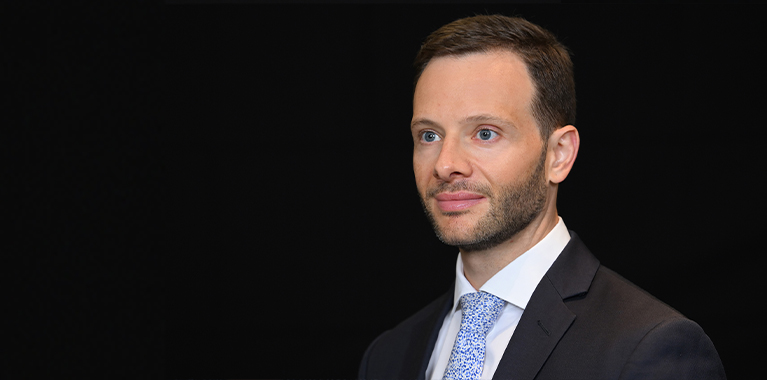ESG and directors' duties - where are we now? ClientEarth v Shell

In ClientEarth v Shell Plc & Ors (Re Prima Facie Case) [2023] EWHC 1137 (Ch), the High Court rejected ClientEarth's application for permission to bring a derivative claim against Shell's directors. The case was touted as a "world-first" of a shareholder using a derivative action to hold the directors of a listed company to account for allegedly failing to manage climate change risks. The claim reflects an anticipated trend of litigation brought by NGOs and activist investors, as businesses move toward the goal of net zero. However, the High Court has now dismissed ClientEarth's claim, following its unsuccessful application for the decision to be reconsidered at an oral hearing (Clientearth v Shell Plc & Ors [2023] EWHC 1897 (Ch)). Further, the Court of Appeal has also rejected an appeal by academics seeking permission to bring a derivative claim against the directors of a university pension scheme for its alleged failure to divest from fossil fuels1. In the light of these recent decisions, we consider the consolidated judgment in ClientEarth v Shell and its likely impact on directors' duties.
Key takeaways
|
The building blocks of the claim
Directors' duties
ClientEarth sought to rely on two of the statutory duties owed by Shell's directors:
- Duty to promote the success of the company (s172 CA 2006). This duty requires a director to act in in good faith when promoting the success of the company for the benefit of the members as a whole, having regard, amongst other matters, to an identified list of considerations, such as the likely consequences of any decision in the long term and the impact of the company's operations on the community and the environment. This is a subjective test.
- Duty to exercise reasonable skill, care and diligence (s174 CA 2006). This duty requires a director to exercise the care, skill and diligence that would be exercised by a reasonably diligent person with the general knowledge, skill and experience that may reasonably be expected of a person carrying out the functions they carry out, and the general skill and experience that director actually has. This therefore includes both subjective and objective elements.
Derivative claims refresher
ClientEarth brought proceedings through a derivative claim; that is a claim brought by a shareholder on behalf of a company. It is an exception to the general rule that a company, acting through its directors, should make such decisions. Derivative claims are often brought by shareholders against directors or against majority shareholders who wrongfully prevent the company from proceeding with the claim itself.
Derivative claims are subject to strict rules which are largely contained within s260(3) of the CA 2006 (there is a narrower common law procedure based on fraud and wrongdoer control). The claim must relate to an actual or proposed act or omission by a director (including a shadow director) involving: (a) negligence; (b) default; (c) breach of duty; and/or (d) breach of trust.
The CA 2006 procedure consists of two stages:
- An “on paper” application, where a prima facie case for permission to continue with the claim must be shown.
- Assuming a prima facie case is established, a substantive hearing of the application.
While the court must refuse permission if a person acting in accordance with the duty to promote the success of the company would not continue the claim, or if the act or omission was authorised or subsequently ratified by the company, the court retains a wide discretion at the substantive hearing to allow the claim to continue. It can consider all "relevant matters". This includes the non-exhaustive list of factors in s263(3) to (4) of CA 2006, which includes acting in good faith, the views of other shareholders that have no direct or indirect personal interest in the claim, and the importance a person acting in accordance with their s172 duty would place on continuing the claim.
ClientEarth decision
ClientEarth's original central contention was that Shell's directors had failed to meet their duties under s172 and s174 CA 2006 because they had allegedly failed to incorporate six specific and necessary incidents of those duties 'when considering climate risk for a company such as Shell'. These duties were framed as follows:
- a duty to make judgements regarding climate risk that are based upon a reasonable consensus of scientific opinion;
- a duty to accord appropriate weight to climate risk;
- a duty to implement reasonable measures to mitigate the risks to the long-term financial profitability and resilience of Shell in the transition to a global energy system and economy aligned with the global temperature objective of 1.5°c under the Paris Agreement on Climate Change 2015;
- a duty to adopt strategies which are reasonably likely to meet Shell's targets to mitigate climate risk;
- a duty to ensure that the strategies adopted to manage climate risk are reasonably in the control of both existing and future directors; and
- a duty to ensure that Shell takes reasonable steps to comply with applicable legal obligations.
However, the court held that Shell's directors were not subject to these incidental duties for three key reasons:
- They are inherently vague and incapable of constituting enforceable personal legal duties.
- They 'cut across' the basic principle of company law that it is for the directors to determine company strategy and to identify which, out of competing considerations, take precedence in meeting their obligation to promote the success of the company.
- They are incompatible with the subjective nature of a director's duty to take reasonable care and skill in managing the business.
At the oral hearing, ClientEarth's case on these incidental duties shifted. Rather than arguing that the directors were subject to these duties simply because of the nature of Shell's business, it argued instead that these duties arose 'as a matter of logic', given Shell's acceptance that climate risk poses a serious risk to its business.
However, the court dismissed this variation of ClientEarth's argument. Shell's acceptance of the serious nature of climate risk did not mean that it accepted that it had an 'overriding status'. Shell's directors remained best placed to manage the competing considerations of its business 'with an open mind', the court 'ill-equipped' to impose its own assessment.
Further obligations
ClientEarth also pleaded further obligations, which were that pursuant to the common law of England and Dutch law respectively, a director who is aware of a court order is under a duty to take reasonable steps to ensure that the order is obeyed. This was pleaded as a precursor to ClientEarth's allegation that Shell had failed to comply with a ruling of a Dutch court, which required Shell to reduce its group-wide annual CO2 emissions by at least net 45% compared to 2019 levels, by the end of 2030 (Milieudefensie v Royal Dutch Shell plc ECLI:NL:RBDHA:2021:5339).
The court held that there was no recognised duty under English law, separate or distinct from the general duties of a director to its company under CA 2006, to ensure compliance with the orders of a foreign court. This claim was also dismissed by the court.
Suitability of the derivative claim process
Although the court was not required to consider the discretionary factors in granting permission (which are ordinarily matters for the substantive hearing), it noted that ClientEarth's claim was not brought in good faith but to publicise its own political agenda.
It also gave weight to the fact that the relevant climate policy had been approved by over 80% of the other shareholders in Shell, and this "strongly" militated against the grant of permission. The court noted the support which ClientEarth received for its claim from members holding 0.17% of Shell’s shares, with support expressed by another 12.5 million shareholders stating that their position was aligned with ClientEarth. However, the letters of support were largely common template in form and were “in any event, a very small proportion of the total shareholder constituency”.
The court also confirmed that it was required to consider at this stage the relief sought by ClientEarth, which included a declaration that Shell's directors had not complied with their duties and an injunction requiring the directors to implement and adopt a strategy to manage climate risk in compliance with statutory duties. The court could not see a legitimate benefit of the declaratory relief, emphasising that it is not the court's function to express views as to directors' conduct which has no substantive effect or legally relevant purpose: the proper forum was, in the court's view, by way of shareholder vote at a general meeting.
As to the injunction, the court held that the remedy sought by ClientEarth was too imprecise to be suitable for enforcement, requiring constant supervision, such as having to adjudicate on disputes over whether the business is being run in accordance with its terms, which is not the function of the court.
This criticism of the attempt to use the derivative claim process was echoed in the Court of Appeal's decision in McGaughey & Anor v Universities Superannuation Scheme Ltd & Ors [2023] EWCA Civ 873. While that claim had some procedural differences, elements of the court's findings were similar. The judgment (which referenced the ClientEarth v Shell decision) described the claim as 'an attempt to challenge the management and investment decisions' of the pension scheme trustee without any supporting evidence. The Court of Appeal also held that 'the derivative procedural mechanism is not intended to enable the would be claimants to avoid other procedural hurdles.'
In its consolidated judgment in ClientEarth v Shell, the court also held that the small size of ClientEarth's shareholding in comparison with the size, complexity and importance of the relief sought pointed strongly to there being an ulterior motive in bringing the claim. Using the 'exceptional procedure' of the derivative claim for such an ulterior purpose would, it held, mean the claim was not brought in good faith.
The future of ESG litigation
Investor scrutiny of decarbonisation and climate strategies, and the extent to which directors are implementing them, is on the rise. Another developing trend is claims between companies in relation to published green credentials (e.g. "Greenwashing" claims). Given the increased public awareness and interest in environmental and decarbonisation issues, it is clear that climate-based claims have the potential to damage reputations. Even the threat of litigation against a company for climate change breaches can impact the company's share price (whether or not the claim is ultimately successful).
ClientEarth's claim has now been dismissed, having failed on the papers and also at the oral hearing (although it has stated that it will request permission to appeal). Irrespective of the outcome of that appeal, the litigation has garnered huge publicity, each individual director has had to defend the claim, and it has brought attention to Shell's policies which would otherwise have not been known. To a certain extent, ClientEarth succeeded in its aims and has drawn attention to the need for company directors to focus on compliance with their climate change responsibilities. Further, Shell's shareholder meetings have now been subjected to more review, which should encourage all boards to do likewise.
However, aside from the procedural obstacles in using the derivative claim process, the claim has also highlighted an inherent substantive difficulty in all current climate change litigation (for both claimants and defendants): the lack of a "universally accepted methodology" by which climate change action can be measured. While in this case the court was unwilling to formulate new and absolute duties in respect of climate change, this may change as more domestic and international policy is developed. A whole host of European and UK regulation is in the pipeline. A key potential battleground is likely to be over the definition of terms regularly used in this context, such as "carbon neutral", that at present do not have a universally understood meaning. Directors should be mindful that such terms in publications are not "puff", and that differing expectations between directors and their shareholders may lead to disputes going forward.
Finally, assuming a climate-change claim succeeds in the future, shareholders will need to give careful consideration to the remedies sought to make sure that they are enforceable. It is clear that courts will not uphold wide ranging injunctions requiring directors to comply with general obligations to consider climate factors, as they require too much supervision. But carefully crafted injunctions, relating to particular projects or considerations, may have a greater chance of success.
Authors: Sue Millar; Adam Culy; David Dowding; Michael Barron; Katie Preiskel; Harriet Campbell
1 McGaughey & Anor v Universities Superannuation Scheme Ltd & Ors [2023] EWCA Civ 873



